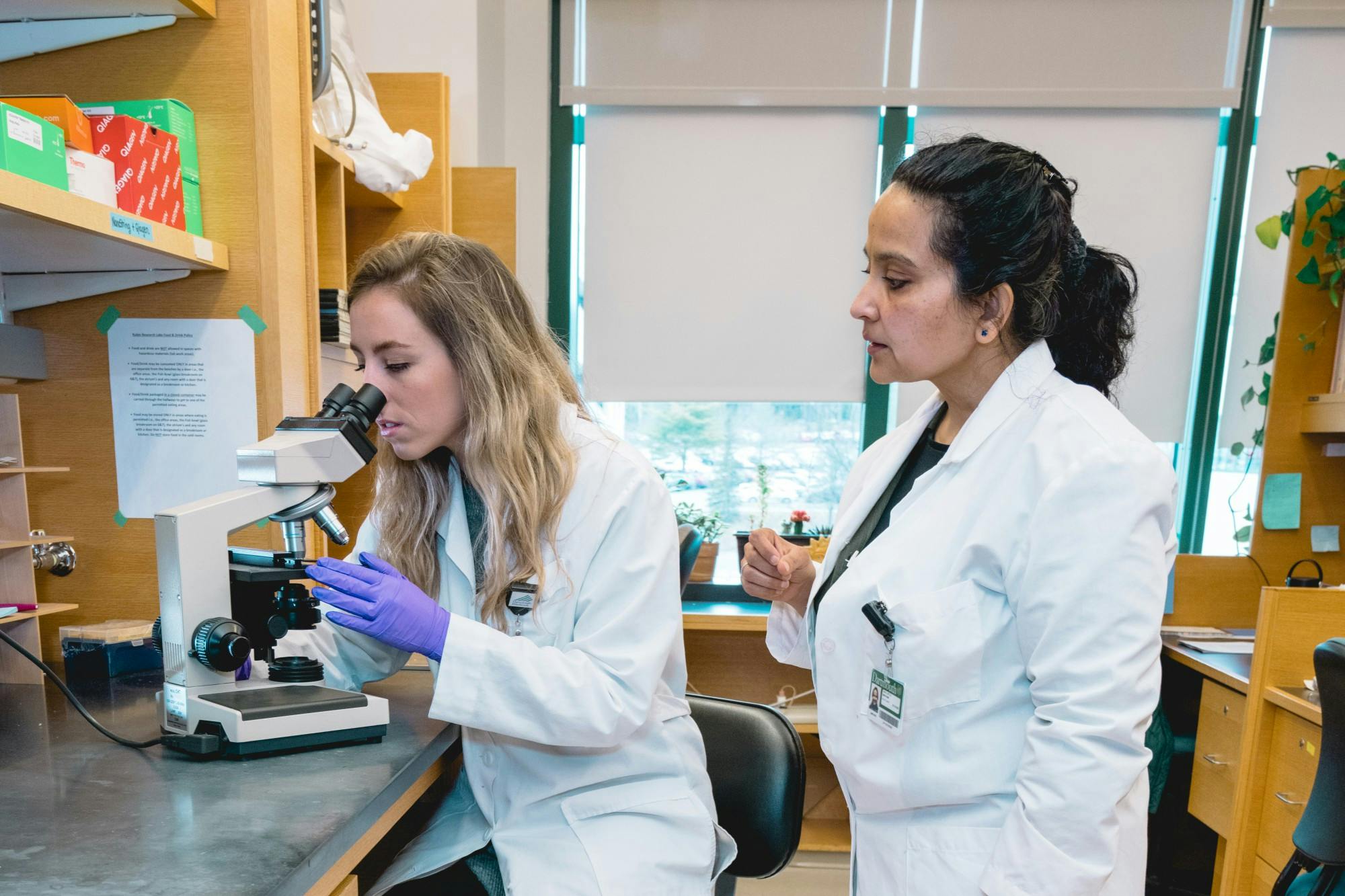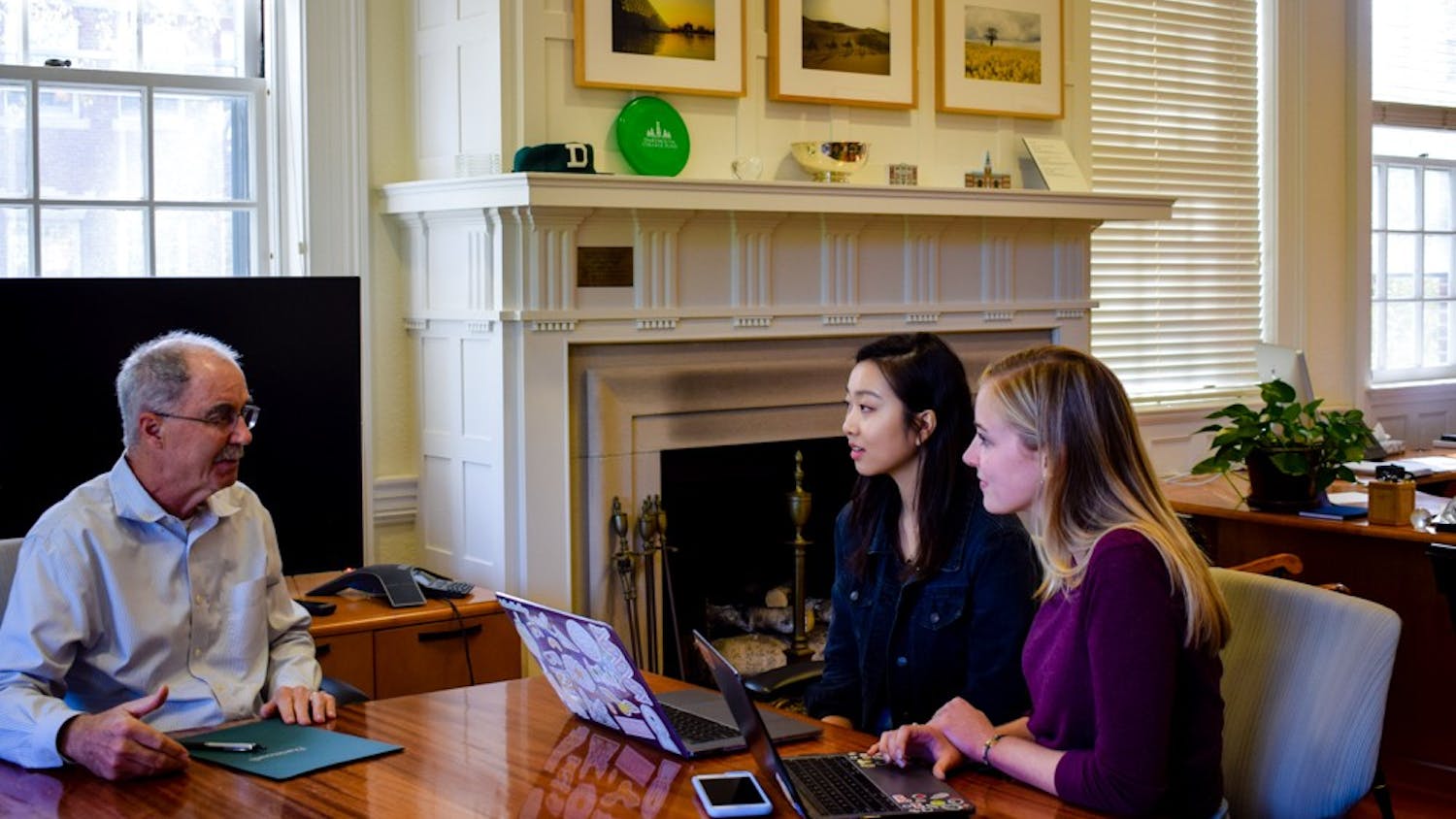The newly funded Dartmouth Innovations Accelerator for Cancer, which has now begun accepting applications, aims to support cancer researchers in bringing their academic projects to the commercial world. The project, announced on Sept. 28, has received $1.4 million in donations from a group of five Dartmouth alumni and will attempt to raise $15 million by 2022.
The program intends to bring together the resources and expertise of Dartmouth-Hitchcock Medical Center’s Norris Cotton Cancer Center, the Geisel School of Medicine and Dartmouth’s Magnuson Center for Entrepreneurship to create a platform for faculty-led groups to acquire the skills and connections necessary to apply their biomedical or cancer-related research findings outside of academia.
“The overall goal of the accelerator is to create an ecosystem that will allow Dartmouth research to ultimately reach cancer patients,” said Lidia Schoonenberg ’14 Th’15, program manager for startup support at the Magnuson Center.
One primary component of the program will be a 10-week educational course for participating researchers that will consist of weekly remote meetings, according to Barry Schweitzer ’82, a senior business development and licensing manager in Dartmouth’s Technology Transfer Office who was involved in starting the project.
The course will cover relevant topics led by industry experts, according to Schweitzer. For example, one topic will be product development for drugs and medical devices, led by Simbex and Celdara Medical, two established biomedical companies located in the Upper Valley.
In addition to the weekly course meetings, the program intends to create relationships between participating researchers, biotech founders and investors. The accelerator team plans to hold networking events and conclude the program with a final venture capital-style “pitch day” presentation in which the cohort of researchers presents their projects to a group of industry experts with three cash awards: one $300,000 Venture Development Award, one $100,000 Early Stage Project Award and one $50,000 Quinn Innovation Award.
The winners of these awards will then be able to use the money to further fund and develop their projects, Schweitzer said. The program currently does not plan on taking any equity stake in the companies that may originate within the program.
Many of Dartmouth’s peer institutions already run similar biotech accelerators or funds. Schweitzer and Bethany Solomon, director of development at the Norris Cotton Cancer Center, helped establish and run Yale University’s Blavatnik Fund for Innovation and Brown University’s Biomedical Innovations to Impact Fund, respectively.
Like Dartmouth’s accelerator, these programs were created with the intention of bridging what Schweitzer called “the valley of death” — the lack of funding and industry-specific education that prevents the copious amount of potentially viable biotechnology and biomedical research that exists in academia from successfully becoming commercial projects.
“What a researcher could be working on in their lab might not be for the correct disease or application, yet with some advice they might try something else, get better results and end up with something more commercially attractive,” Schweitzer said.
The resources that the program plans to provide are intended to ease the transition of discoveries from academia to industry in hopes that more professors will be able and willing to test their ideas for future applications. Community members will likely be able to attend and view periodic virtual presentations and updates on research throughout the program, with the culminating “pitch day” serving as a focal point.
Additional donations to the project will likely be used to expand programming, aid in the program’s longevity and increase the number of awardees and size of each admitted cohort, according to Solomon. She said that she imagines a future for the program in which projects receive $50,000 the first time they complete the program and then $100,000 of further funding after completing the program for a second time, “with the ultimate goal of supporting the faculty until their project reaches the stage of industry or commercialization.”



